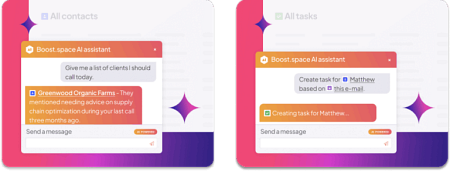Introduction: The Integration Challenge in a Multi-Tool World
What Is an MCP Server?
An MCP server is a flexible, secure, and scalable platform designed to unify integrations, automate workflows, and centralize your data exchange between virtually any business system—cloud, on-premise, or hybrid. Unlike traditional two-way sync tools or basic middleware, an MCP server delivers:
– Three-way and multi-directional synchronization
– Real-time data updates across all connected apps and databases
– Built-in support for AI and advanced automation
– Enterprise-level security, role management, and auditability
Business Value: Going Beyond the “Connector Jungle”
Today’s integration landscape is a jungle of disconnected APIs and scripts. Businesses that attempt to manage these manually face constant technical debt, missed opportunities, and increased data silos. With an MCP server:
– IT teams reduce manual integration work and maintenance
– Business leaders gain unified data visibility for faster, smarter decisions
– Security/compliance personnel enforce governance with robust controls and audit trails
In other words: one platform, endless possibilities, zero chaos.
Core Features That Set MCP Server Apart
Deploying an [MCP server](https://boost.space/blog/mcp/) provides future-proof advantages such as:
– No-code or low-code integration: Empower non-technical teams to orchestrate and automate without waiting for engineering bandwidth.
– AI readiness: Seamlessly feed unified, real-time data to large language models, analytics engines, or AI-driven automations—out of the box.
– Scalability: Start with a single process or team and scale to thousands of workflows, unlimited apps, and massive datasets.
– Modular architecture: Use standard modules (e.g., for data sync, transformation, notifications) and add specialized pro or enterprise modules as your needs grow.
Real-World Scenario: Orchestrating Operations at Scale
Imagine a retailer syncing inventory between e-commerce, ERP, and multiple marketplaces. With an MCP server, every product update is instantly reflected in all systems, customer orders automatically routed and processed, and exception handling built into the workflow. Marketers, analysts, and finance teams all use the same up-to-date, trusted data.

Implementation: How Easy Is It To Start?
Setting up an MCP server takes hours—not months. Modern platforms provide guided onboarding, 1100+ ready-to-deploy integrations, and robust documentation. Whether you’re connecting Gmail, Salesforce, databases, or custom tools, the MCP approach outpaces legacy middleware or brittle custom scripts.
Security, Compliance, and Enterprise Confidence
With features such as granular role management, end-to-end encryption, detailed logging, and GDPR/SOC 2/ISO compliance, the [MCP server](https://boost.space/blog/mcp/) offers peace of mind for even the most regulated industries.
Future-Proof Your Integration Strategy
The business systems of tomorrow demand more than “connectors.” They require smart, scalable, and AI-ready infrastructure—put simply, an MCP server. Don’t just automate tasks, orchestrate your business.
You May Also Like :
